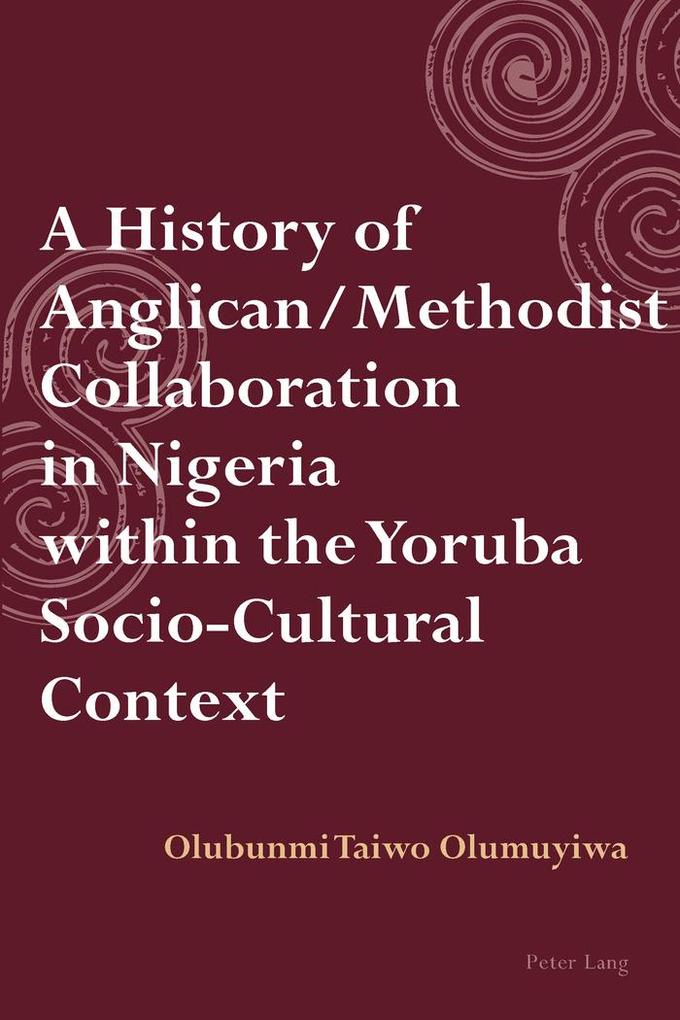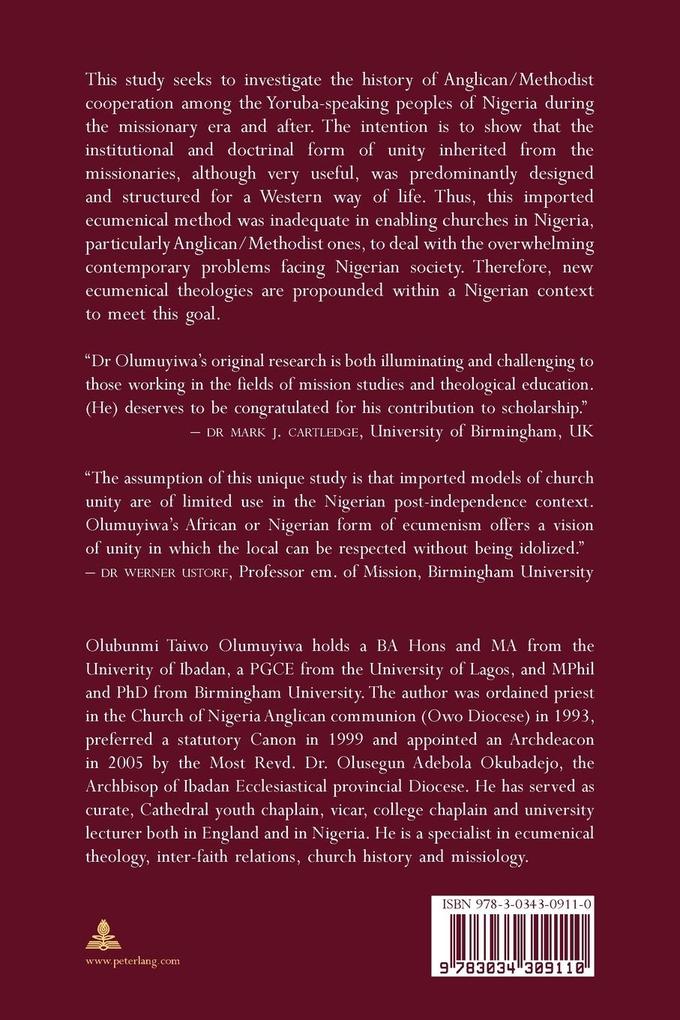This book shows that an imported ecumenical method was inadequate in enabling churches in Nigeria, particularly Anglican / Methodist ones, to act ecumenically in dealing with the overwhelming contemporary problems facing Nigerian society. Therefore, new ecumenical theologies are propounded, within a Nigerian context, to meet this goal.
This study seeks to investigate the history of Anglican / Methodist cooperation among the Yoruba-speaking peoples of Nigeria during the missionary era and after. The intention is to show that the institutional and doctrinal form of unity inherited from the missionaries, although very useful, was predominantly designed and structured for a Western way of life. Thus, this imported ecumenical method was inadequate in enabling churches in Nigeria, particularly Anglican / Methodist ones, to deal with the overwhelming contemporary problems facing Nigerian society. Therefore, new ecumenical theologies are propounded within a Nigerian context to meet this goal.
Inhaltsverzeichnis
Contents: Theoretical and Conceptual Framework Impact of Ecumenism Outside of Nigeria on Nigerian Discussion Post-Independence Collaboration of the Anglican and Methodist Churches in Nigeria Anglican/Methodist Collaboration within the Yoruba Religio-Cultural Context of Nigeria Anglicans and Methodists as Part of the Ecumenical Institutions in Nigeria Anglican/Methodist Collaboration and Theological Education in Nigeria.
Jetzt reinlesen:
Inhaltsverzeichnis(pdf)










